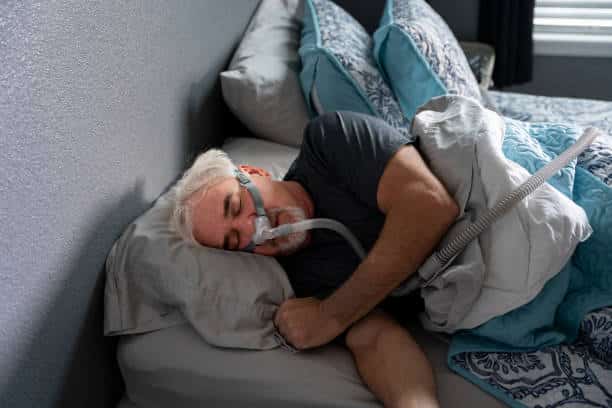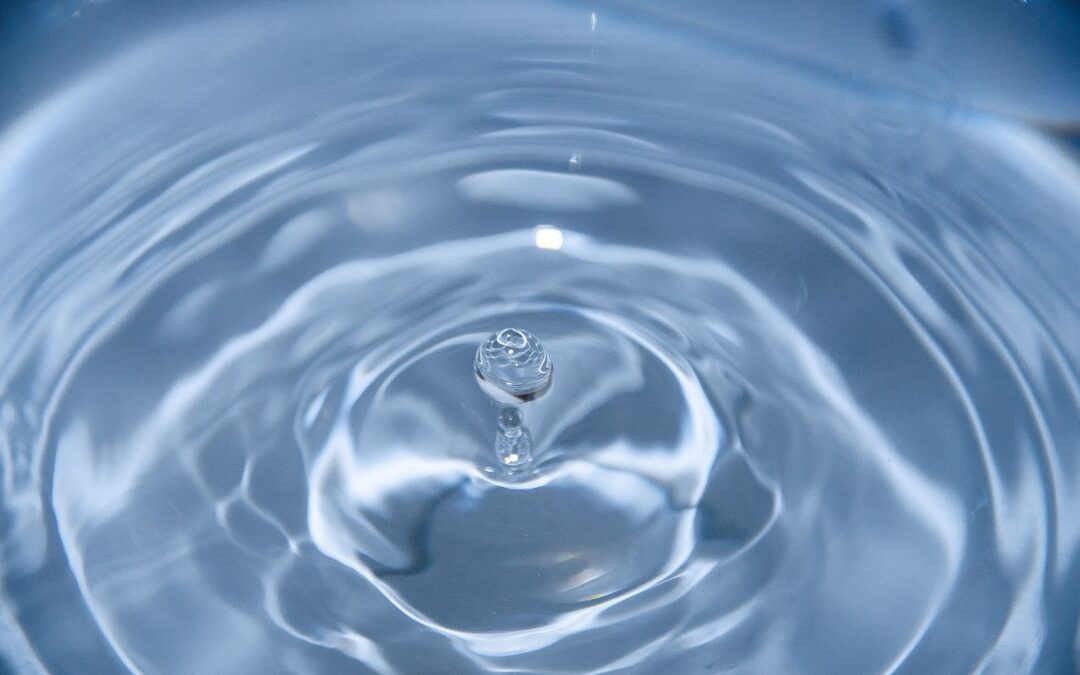The relationship between alcohol and sleep apnea is complex and often not immediately recognized. Many people turn to alcohol for relaxation and social bonding, but its impact on sleep, especially concerning sleep disorders, cannot be overlooked. Sleep apnea, a significant sleep disorder, is prevalent among middle-aged individuals.
This article provides an in-depth exploration of the intricate dynamics between alcohol consumption and sleep apnea, particularly emphasizing challenges faced by the middle-aged demographic. Learn more why!
Key Takeaways:
- Alcohol & Sleep Apnea: Alcohol intensifies sleep apnea symptoms, especially in middle-aged individuals, by relaxing throat muscles and obstructing airways.
- Middle Age Risks: Natural hormonal and lifestyle changes in middle age elevate sleep apnea vulnerabilities. Alcohol compounds these risks.
- Managing Impact: For those on CPAP therapy, post-alcohol vigilance is essential. Setting boundaries, moderating intake, and adjusting therapy settings can mitigate potential disruptions.
Sleep Apnea Defined
Sleep apnea is when breathing pauses during sleep, often leading to snoring and fatigue. Middle-aged individuals are more susceptible due to factors like weight gain and lifestyle habits. When alcohol, a relaxant, is consumed, it can intensify these disruptions, posing additional challenges for this age group.
Also Read: How Is Sleep Apnea Different In Men And Women
The Middle-Aged Demographic: Why They’re at Risk

Middle age introduces a series of distinctive challenges and transitions. From changes in metabolism to shifts in physical health, this life stage can be when conditions like sleep apnea become more noticeable. Alcohol, often enjoyed for relaxation and social purposes, might unintentionally magnify these challenges.
Age-Related Changes
With age, there are natural modifications in sleep patterns and muscle tone. These changes can predispose individuals to conditions like sleep apnea.
Hormonal Influences
The journey through middle age often brings hormonal fluctuations. These changes can impact sleep quality and lead to breathing challenges at night.
Lifestyle Choices
Decisions related to physical activity and dietary habits play a role in one’s health during middle age. Notably, weight gain emerges as a critical risk factor for sleep apnea.
Comorbid Conditions
Middle age is a period when other health conditions, like hypertension or diabetes, often become more prevalent. These conditions can exacerbate and make sleep apnea worse. When coupled with alcohol consumption, the severity of sleep apnea can escalate further, presenting compounded challenges for individuals.
Alcohol’s Role in Sleep Patterns
Below are some detailed insights into how alcohol interacts with our sleep patterns.
Disrupting Sleep Cycles
Alcohol can disrupt the REM sleep stage, essential for memory and mood regulation. This interference with REM sleep can result in fragmented sleep and reduced recuperative rest.
Breathing Challenges
Alcohol relaxes the throat muscles and can cause narrower airways, leading to snoring or short breathing cessation — a hallmark of sleep apnea.
Nighttime Awakenings
While alcohol might help some fall asleep faster, it often results in more frequent awakenings throughout the good night’s sleep. These disruptions can make it challenging to get a whole night’s rest.
Dehydration and Side Effects
Alcohol can lead to dehydration, which might cause night sweats and increased trips to the bathroom, further disrupting the sleep cycle, too.
Protective Measures and Precautions
Understanding the relationship between alcohol and sleep apnea is vital for middle-aged individuals. Drinking alcohol much earlier in the evening, instead of close to bedtime, provides the body ample time to metabolize alcohol, lessening its sleep-related effects. Moreover, practicing moderation and consuming fewer drinks can prevent sleep disruptions due to excessive muscle relaxation.
Pairing each alcoholic beverage with a glass of water is a practical step to counter dehydration, a common side effect of drinking. Furthermore, regular health evaluations and discussions about alcohol affects with healthcare professionals can offer insights into potential sleep disorders and guide on maintaining a balanced relationship with alcohol. This proactive approach ensures better sleep quality, even with occasional alcohol consumption.
The Consequences for the Middle-Aged Drinker
Introducing alcohol exacerbates specific vulnerabilities, particularly in the context of sleep apnea. The fusion of age-related changes and alcohol impacts sleep quality and opens the door to a series of potential health risks.
The intricate relationship between sleep apnea and cardiovascular issues becomes increasingly concerning for middle-aged individuals who consume alcohol. Intermittent breathing disruptions and decreased sleep quality put additional stress on the heart, heightening the risk of hypertension and heart attacks. In parallel, both alcohol affect sleep apnea disturbances can pave the way for cognitive challenges, with sustained lack of deep sleep potentially leading to memory lapses and decreased mental sharpness.
Real Life example
Consider the experience of John, a 52-year-old accountant: “Following evenings where I had a few drinks, my snoring seemed louder, and I’d wake up feeling unrested. A subsequent medical evaluation revealed sleep apnea. I was informed about how my drinking habits exacerbated the condition.” Personal accounts like John’s emphasize the gravity of combining excessive alcohol consumption with the natural aging process.
Individuals in their middle years must recognize these compounded effects. By making mindful choices about alcohol intake, they can promote better health and ensure a higher quality of life as they age.
CPAP Therapy and Alcohol: What You Need to Know

As one matures, managing health conditions becomes crucial, and for those with sleep apnea, CPAP (Continuous Positive Airway Pressure) therapy is often a lifeline. However, coupling this therapy with alcohol consumption can lead to unexpected challenges.
Alcohol is known for its soothing properties. While this can induce sleep, it relaxes the muscles in the throat. For individuals using CPAP machines, this relaxation can counteract the device’s primary function of keeping the airway open.
As a result, despite being in therapy, one might experience increased apnea episodes on nights they consume alcohol.
Guidance for CPAP Users Who Drink
1. Limit Consumption
It’s beneficial to curtail alcohol intake, particularly in the hours close to bedtime. This helps reduce its impact on the effectiveness of CPAP therapy.
2. Monitor Therapy Effectiveness
After drinking, be vigilant about assessing your sleep quality. Feeling unusually tired or experiencing morning headaches can be indicators that your therapy wasn’t optimal.
3. Adjust CPAP Settings
Some people find that minor adjustments to their CPAP settings on nights they consume alcohol can help. Always consult with a healthcare professional before making changes.
4. Consult Your Doctor
Discuss your drinking habits and related concerns with your healthcare provider. They can offer guidance tailored to your specific needs and medical history.
Awareness of the interplay between alcohol and CPAP therapy is the first step towards managing both effectively. By adhering to these guidelines, users can continue enjoying their treatment’s full benefits.
Practical Tips to Reduce Risks
Balancing alcohol consumption with health concerns, especially concerning sleep, requires careful consideration and proactive measures. It’s essential to mitigate potential risks and promote overall well-being. Below are some actionable and practical tips to help you navigate this delicate balance more safely.
- Educate Yourself: Attend workshops or seminars on the relationship between alcohol and sleep. Being informed can lead to safer choices.
- Set Boundaries: Define a clear boundary for your alcohol consumption, and follow it consistently.
- Alternate Drinks: For every alcoholic beverage, sip a non-alcoholic one next, like water or juice, to dilute its impact.
- Eat Beforehand: Consume a healthy meal before drinking. Food can slow the absorption of alcohol, reducing its immediate effects.
- Use Alarm Reminders: Set alarms reminding you to drink water and when to stop consuming alcohol, especially during social gatherings.
- Check Medication Interactions: If you’re on medication, consult your pharmacist or doctor about potential alcohol interactions.
- Avoid Late Night Drinks: Remember not to drink alcohol close to bedtime.
- Seek Feedback: Sometimes, friends or family might notice patterns or changes you miss. Listen to their observations.
Other Ways to Combat Sleep Apnea in Midlife

Mindfulness and Meditation
Not only do they help in relaxation, but consistent mindfulness practices can also improve sleep patterns and overall sleep quality.
Opt for Herbal Teas
Replace the alcoholic nightcap with calming teas like chamomile or valerian root. They induce relaxation without affecting the airway muscles.
Breathing Exercises
Proper breathing can ensure steady oxygen flow during sleep. Practices like pranayama can strengthen respiratory muscles, potentially aiding those with sleep apnea.
Maintain a Regular Sleep Schedule
Ensuring consistency in sleep timing can regulate the body’s internal clock, providing more restful sleep.
Elevate the Head
Use pillows or adjustable beds to keep the head elevated, reducing the chances of airway obstructions.
Weight Management
Midlife often comes with weight gain. Maintaining a healthy weight can reduce sleep apnea risks, as excess fat, especially around the neck, can press down the airway.
Conclusion
Our journey through midlife comes with unique challenges, and understanding the intricate link between alcohol and sleep apnea is paramount.
As we’ve explored, alcohol, despite its soothing qualities, can exacerbate sleep apnea symptoms, presenting risks, especially for those navigating their middle years. But knowledge is power. Armed with the insights from this article, individuals can make informed decisions about their alcohol consumption and its potential impacts on sleep health.
Early detection and intervention can prevent a host of related health issues. For those seeking solutions, consider checking out CPAPwater’s offerings on Amazon for assistance. Midlife isn’t just a period of reflection; it’s a time of action. By prioritizing health and making conscious choices, we can ensure that our later years are fulfilling and brimming with vitality. After all, good health is the cornerstone of a life well-lived.
What are your key takeaways from this article?



